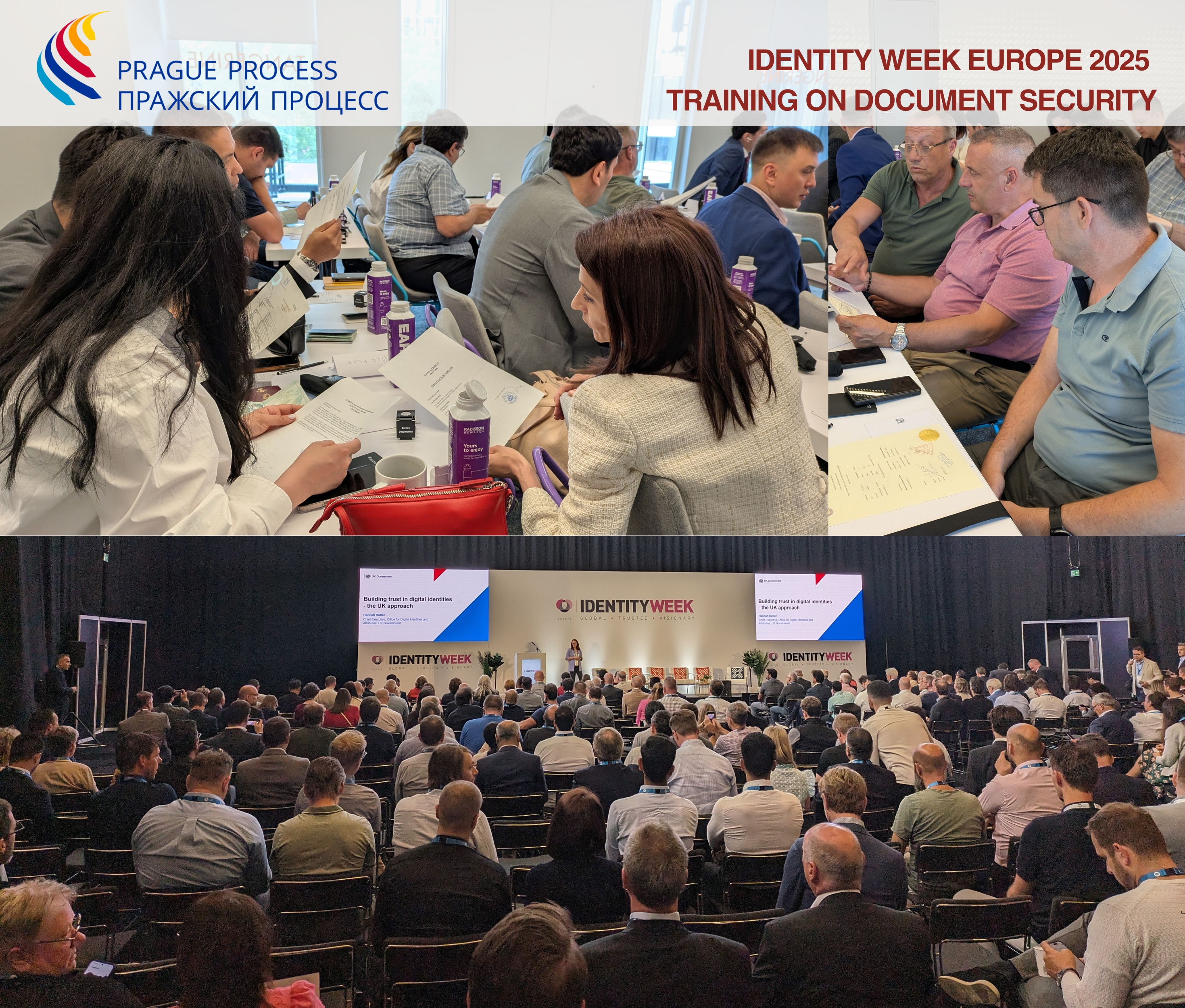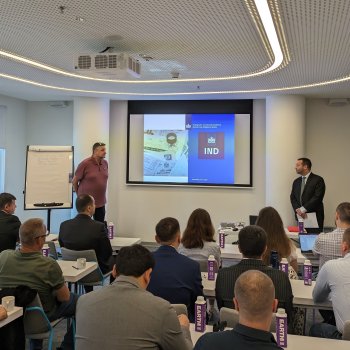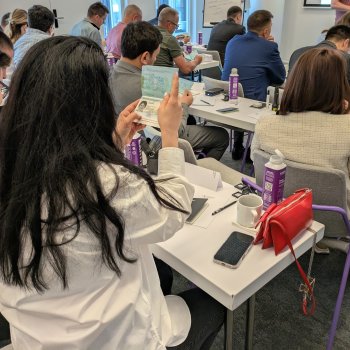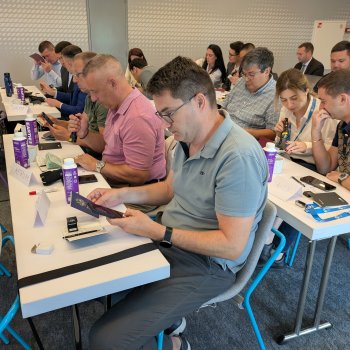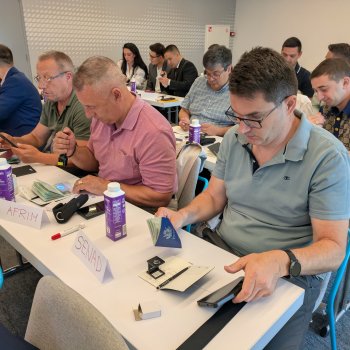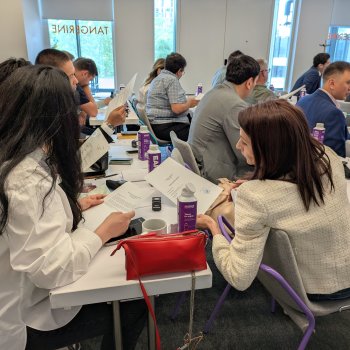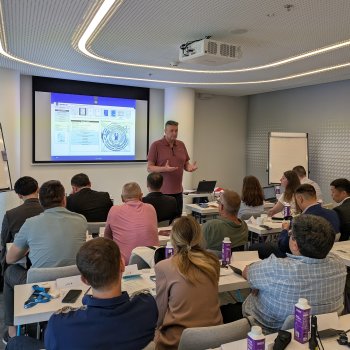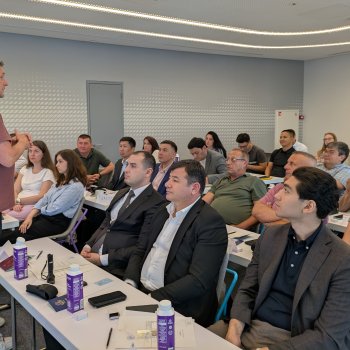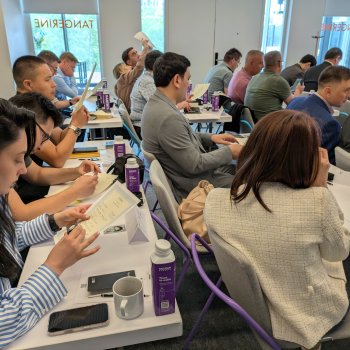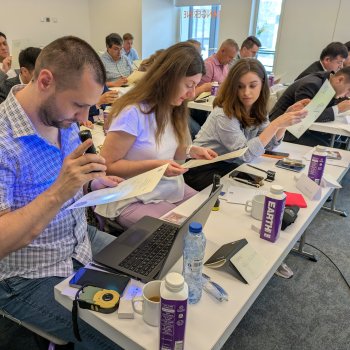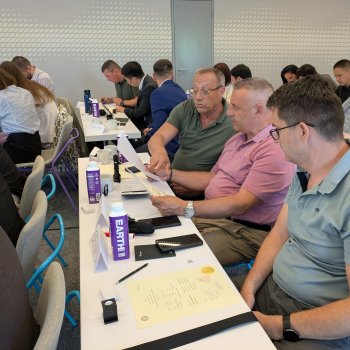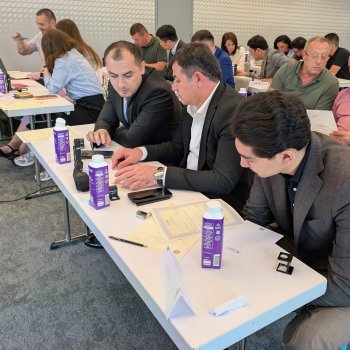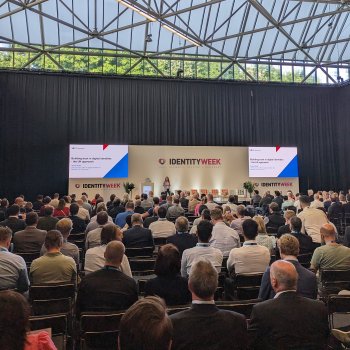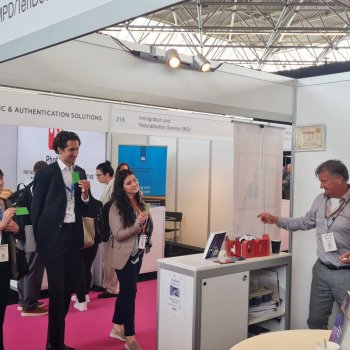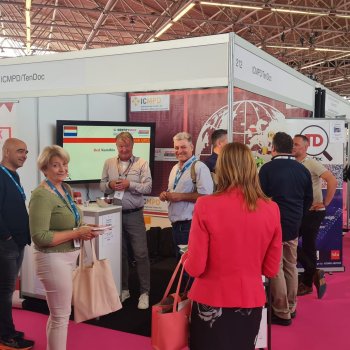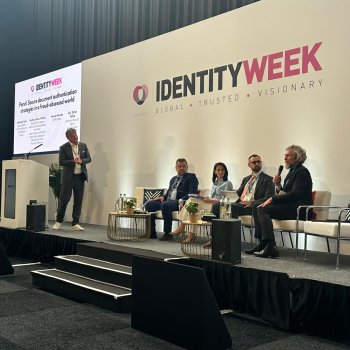On 17-19 June 2025, the Prague Process joined the Identity Week Europe 2025 conference and organised the Training on Identity Verification and Document Authentication in Amsterdam. With some 3,500 attendees from over 100 countries, including 250 exhibitors, this year's Identity Week (IDW) conference was the largest to date, demonstrating the growing interest in identity management, digital security, and innovation.
IDW 2025 gathered representatives from government, finance, technology, healthcare, and civil society to explore pressing topics such as biometric border control, synthetic identities, deepfakes, identity access management, and the evolving role of AI in securing digital identities. Document examiners, border control specialists, and policymakers from the Prague Process states participated for the third consecutive year. They benefited from diverse sessions ranging from highly technical presentations about document security to policy-driven discussions, covering key themes like document fraud prevention, secure travel, and the future of border management and security. Numerous exhibitors showcased the newest document security technologies and ways to combat fraud, with the ICMPD presenting its ongoing international efforts in identity and border management.
The panel on “Secure authentication strategies in a fraud-obsessed world” featured the representative of the Moldovan Border Police, who assessed the role of biometrics in detecting document fraud. The panel explored real-life cases, advanced authentication methods, and the critical role of reliable identity systems in managing migration and safeguarding borders.
Frontex emphasised the need for proactive border checks before arrival as well as the increased integration of military structures in border management, especially in Eastern Europe. Reporting a 20% drop in irregular migration to the EU, the Agency introduced the Entry/Exit System (EES) to be launched in October 2025, as well as the European Travel Information and Authorisation System (ETIAS) due in late 2026. In the future, border management would become increasingly "phygital", requiring technological upgrades, like new EES-ready hardware and traveller apps, and a fundamental shift in law enforcement skills and interoperability to meet evolving security and mobility needs.
Following the IDW, the Prague Process hosted the Training on Identity Verification and Document Authentication, provided by the Dutch Immigration and Naturalisation Service (IND) under the Ministry of Justice and Security. Building on the success of 2024, the Dutch experts introduced more advanced exercises, using real and counterfeit breeder documents. The targeted sessions covered forgery detection techniques, biometric security features, and the latest tools and databases for identity verification.
All participants expressed their appreciation and gratitude for the opportunity to exchange national experiences, deepen their expertise, and apply practical skills relevant to their daily work. Several noted that the IDW and training helped them identify emerging threats and provided ideas for improving identity practices back home. As stipulated by the Prague Process Action Plan 2023-2027, both events shall contribute to technological advancements and improved capacities across the participating states.

